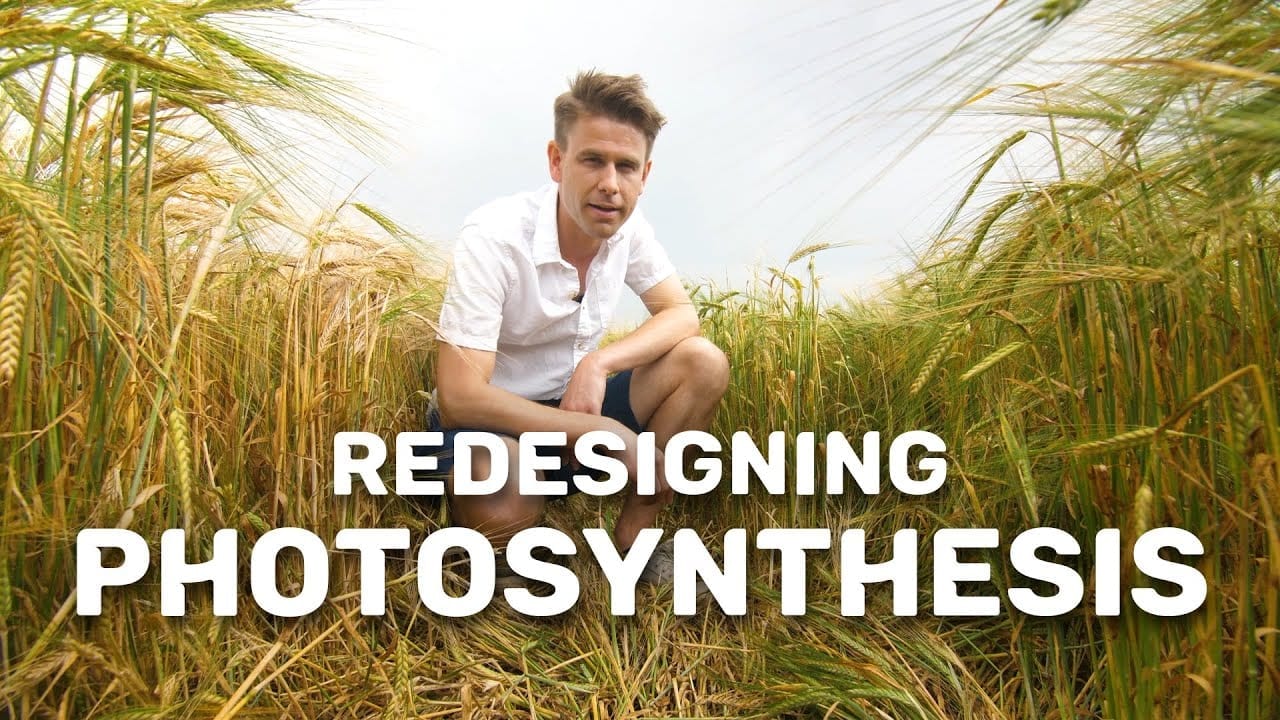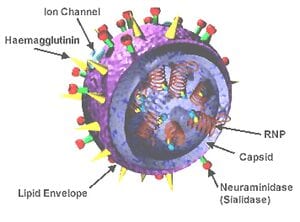
New discoveries of the way plants transport important substances across their biological membranes to resist toxic metals and pests, increase salt and drought tolerance, control water loss and store sugar can have profound implications for increasing the supply of food and energy for our rapidly growing global population.
That’s the conclusion of 12 leading plant biologists from around the world whose laboratories recently discovered important properties of plant transport proteins that, collectively, could have a profound impact on global agriculture. They report in the May 2nd issue of the journal Nature that the application of their findings could help the world meet its increasing demand for food and fuel as the global population grows from seven billion people to an estimated nine billion by 2050.
“These membrane transporters are a class of specialized proteins that plants use to take up nutrients from the soil, transport sugar and resist toxic substances like salt and aluminum,” said Julian Schroeder, a professor of biology at UC San Diego who brought together 11 other scientists from Australia, Japan, Mexico, Taiwan, the U.S. and the U.K. to collaborate on a paper describing how their discoveries collectively could be used to enhance sustainable food and fuel production.
Schroeder, who is also co-director of a new research entity at UC San Diego called Food and Fuel for the 21st Century, which is designed to apply basic research on plants to sustainable food and biofuel production, said many of the recent discoveries in his and other laboratories around the world had previously been “under the radar”—known only to a small group of plant biologists—but that by disseminating these findings widely, the biologists hoped to educate policy makers and speed the eventual application of their discoveries to global agriculture.
“Of the present global population of seven billion people, almost one billion are undernourished and lack sufficient protein and carbohydrates in their diets,” the biologists write in their paper. “An additional billion people are malnourished because their diets lack required micronutrients such as iron, zinc and vitamin A. These dietary deficiencies have an enormous negative impact on global health resulting in increased susceptibility to infection and diseases, as well as increasing the risk of significant mental impairment. During the next four decades, an expected additional two billion humans will require nutritious food. Along with growing urbanization, increased demand for protein in developing countries coupled with impending climate change and population growth will impose further pressures on agricultural production.”
“Simply increasing inorganic fertilizer use and water supply or applying organic farming systems to agriculture will be unable to satisfy the joint requirements of increased yield and environmental sustainability,” the scientists added. “Increasing food production on limited land resources will rely on innovative agronomic practices coupled to the genetic improvement of crops.”
One of Schroeder’s research advances led to the discovery of a sodium transporter that plays a key role in protecting plants from salt stress, which causes major crop losses in irrigated fields, such as those in the California central valley. Agricultural scientists in Australia, headed by co-author Rana Munns and her colleagues, have now utilized this type of sodium transporter in breeding research to engineer wheat plants that are more tolerant to salt in the soil, boosting wheat yields by a whopping 25 percent in field trials. This recent development could be used to improve the salt tolerance of crops, so they can be grown on previously productive farmland with soil that now lies fallow.
Another recent discovery, headed by co-authors Emanuel Delhaize in Australia and Leon Kochian at Cornell University, opens up the potential to grow crops on the 30 percent of the earth’s acidic soils that are now unusable for agricultural production, but that otherwise could be ideal for agriculture.
“When soils are acidic, aluminum ions are freed in the soil, resulting in toxicity to the plant,” the scientists write. “Once in the soil solution, aluminum damages the root tips of susceptible plants and inhibits root growth, which impairs the uptake of water and nutrients.”
From their recent findings, the plant biologists now understand how transport proteins control processes that allow roots to tolerate toxic aluminum. By engineering crops to convert aluminum ions into a non-toxic form, they said, agricultural scientists can now turn these unusable or low-yielding acidic soils into astonishingly productive farmland to grow crops for food and biofuels.
The Latest Bing News on:
Plant Protein Discoveries
- AI Molecular Farming Making Plant-Based Dairy Easier And Cheaperon April 28, 2024 at 2:01 am
Finally Foods unites big data, AI and molecular farming to enhance production and provide sustainable alternatives to animal-based proteins.
- Revealing Protein-Ligand Interactions Using AI Enables Drug Discoveryon April 26, 2024 at 7:34 am
Researchers developed a method to assess the ability of small molecules to bind to hundreds of human proteins using AI and ML.
- Genetic hope in fight against devastating wheat diseaseon April 26, 2024 at 6:37 am
Fungal disease Fusarium head blight (FHB) is on the rise due to increasingly humid conditions induced by climate change during the wheat growing season, but a fundamental discovery by University of ...
- Sniffing out new discoverieson April 25, 2024 at 8:00 am
A key protein expressed in epithelial “skin” cells plays a critical role in protecting the structure and function of cells in the nervous system of a model nematode, according to new research ...
- Study Reveals How Plant Protein Contributes To Healthy Ageing in Womenon April 25, 2024 at 3:12 am
There is significant evidence that adopting a protein-rich diet, particularly one based in plant proteins, can support women in achieving healthy ageing, according to recent research.
- MycoTechnology progresses towards commercialisation of honey truffle sweeteneron April 24, 2024 at 5:00 pm
mechanistic understanding of the protein, sensory characterisation and applications development with industry partners. This progress is a reflection of Myco’s unique ability to integrate discovery ...
- MycoTechnology Advances Toward Commercialization of Honey Truffle Sweeteneron April 22, 2024 at 8:35 am
After isolating the protein responsible for its sweet taste, MycoTechnology used precision fermentation technology to produce the first honey truffle sweetener.
- Danish scientists unlock plant-based protein source from microalgaeon March 28, 2024 at 8:45 am
The University of Copenhagen team’s algae-based protein discovery could be a significant leap in sustainable food production. Other popular plant-based protein sources, like soy and peas ...
- Discovery of amino acid unveils how light makes stomata open in plantson March 26, 2024 at 6:57 am
This research opens up possibilities for manipulating plant physiology in specific ways ... altering the structure and function of the protein depending on whether the phosphate is present.
- New drug inhibitors target protein linked to Alzheimer's and heart diseaseon March 21, 2024 at 5:00 pm
The health impacts of a complex protein that plays a major role in ... The most powerful engine to drive new discoveries on CaMKII functions may lie in the availability of three distinct classes ...
The Latest Google Headlines on:
Plant Protein Discoveries
[google_news title=”” keyword=”Plant Protein Discoveries” num_posts=”10″ blurb_length=”0″ show_thumb=”left”]
The Latest Bing News on:
Plant transport proteins
- Plant Based Highlights Across Categorieson April 26, 2024 at 4:30 am
Globally, food and drink launches containing microalgae experienced average annual growth of more than 40% during a recent three-year period. Trends in plant-based proteins from the sea—as well as new ...
- Global Plant-based Protein (Soy, Wheat, Pea, Potato) Market Forecast to 2031on April 22, 2024 at 2:32 am
The "Global Plant-based Protein Market by Type (Soy Proteins, Wheat Proteins, Pea Proteins, Potato Proteins), Form (Solid, Liquid), ...
- Plant-based meat has less protein and lacks certain nutrientson April 20, 2024 at 9:59 am
Some plant-based steaks might be similar to real meat nutrients. Others might have less protein or harder for our bodies to digest.
- Researchers crack mystery of swirling vortexes in egg cellson April 18, 2024 at 6:16 am
Egg cells are the largest single cells on the planet. Their size—often several to hundreds of times the size of a typical cell—allows them to grow into entire organisms, but it also makes it difficult ...
- Boron deficiency in oilseed rape transcriptome resembles a wounding and infection responseon April 15, 2024 at 9:55 am
Boron deficiency has a devastating effect on oilseed rape and related plants. However, little is known about the underlying genetic mechanisms. A study shows that the response to persistent or ...
- Starving cells hijack protein transport stationson April 11, 2024 at 5:00 pm
Study details how nutrient-starved cells divert protein transport stations to cellular recycling centers to be broken down, highlighting a novel approach cells use to deal with stressful conditions.
- Wireless EV charging robots and next-gen plant-based proteins: The best green innovations of March 2024on March 26, 2024 at 5:00 pm
Outside the transport sector, innovators continue to experiment ... New Zealand foodtech company Leaft Foods is helping growers do this by producing a plentiful, natural protein from plants. Called ...
- Study shows how proteins guide electrons to the right placeon February 15, 2024 at 7:30 am
Photosynthesis in plants is a prime example ... In a new study, researchers show how proteins deform to create efficient transport routes for the charges. "We studied a protein, photolyase ...
- No fruit on your healthy plants? This could be whyon December 20, 2023 at 9:05 am
Potassium is absorbed by plants in larger amounts than any other mineral element except nitrogen and helps in the building of protein, fruit quality and ... It is a pollinator’s job to transport ...
- Plant Cells, Chloroplasts, and Cell Wallson September 29, 2023 at 7:08 pm
Plant cells have several structures not found ... whereas the inner membrane is less permeable and studded with transport proteins. The innermost matrix of chloroplasts, called the stroma ...
The Latest Google Headlines on:
Plant transport proteins
[google_news title=”” keyword=”plant transport proteins” num_posts=”10″ blurb_length=”0″ show_thumb=”left”]










